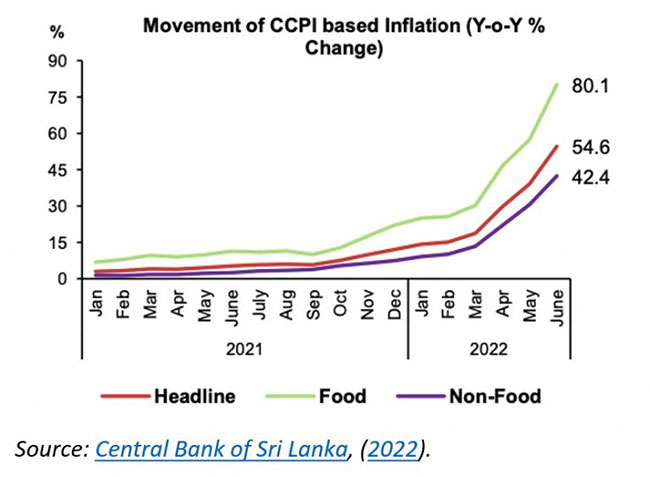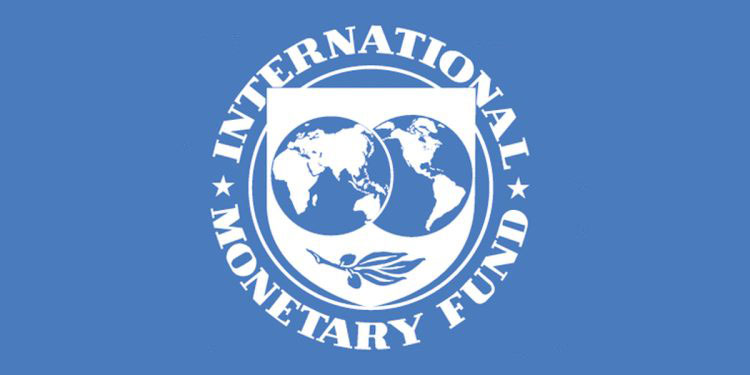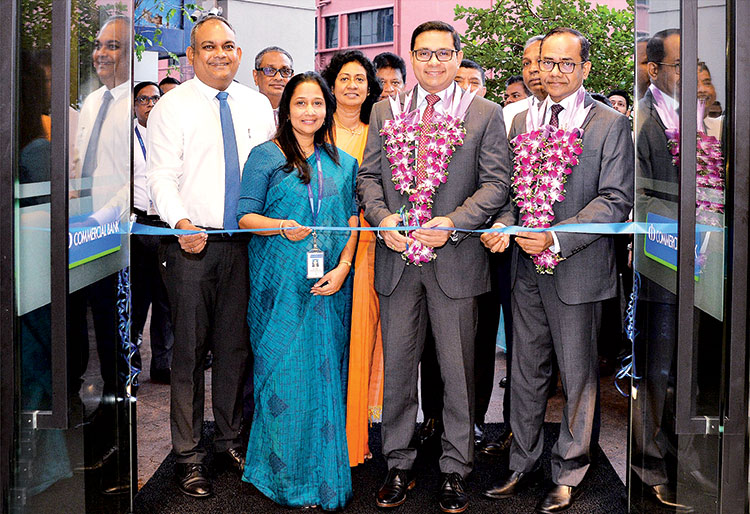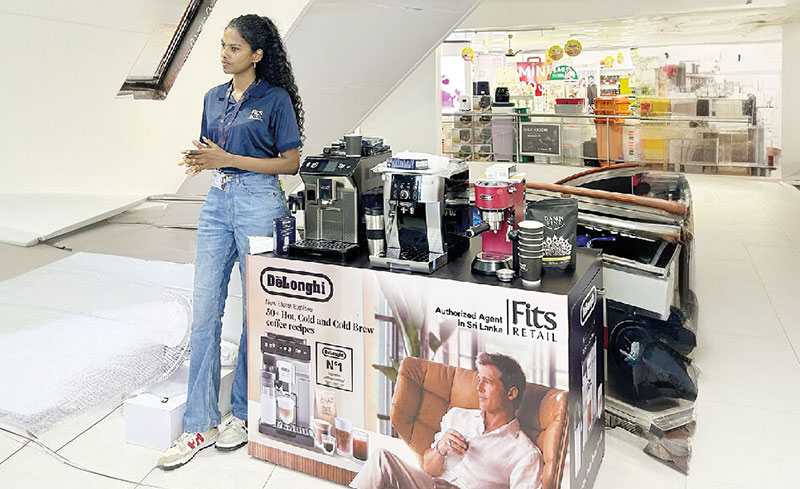Business
The Plight of the Poor

Sri Lanka’s Deepening Economic Crisis:
By Lakshila Wanigasinghe
 Empty supermarket shelves, endless queues to buy essentials and overnight camping around fuel stations are now regular sights in Sri Lanka. As the economy continues to plummet with no viable short-term solutions in sight, levels of frustration among the citizens continue to rise.
Empty supermarket shelves, endless queues to buy essentials and overnight camping around fuel stations are now regular sights in Sri Lanka. As the economy continues to plummet with no viable short-term solutions in sight, levels of frustration among the citizens continue to rise.
The country’s worst economic crisis since independence has battered Sri Lankans from all walks of life but the fallouts are impacting the poor with greater intensity. If urgent measures are not taken to support the most vulnerable at this time, more Sri Lankans will slip into poverty thus increasing intergenerational poverty in the long term. This blog identifies some of the most pressing challenges faced by the poor and vulnerable amidst the prevailing crisis and outlines policy options to safeguard their well-being.
Background
Sri Lanka’s current economic crisis is a result of several years of mismanagement, corruption, shortsighted policymaking, and an overall lack of good governance. Insufficient foreign reserves at Sri Lanka’s Central Bank and loss of access to international capital markets resulted in the country defaulting on debt for the first time in history. Unchecked external borrowings, tax cuts that widened the existing budget deficit, the chemical fertiliser imports ban and the sudden floating of the Sri Lankan rupee are among several factors that contributed to the economic collapse. Tourism, together with apparel and tea exports – some of Sri Lanka’s main income sources – were affected in recent years due to various internal and external factors such as the 2019 Easter Sunday attacks followed by COVID-19 in 2020. Now, the economic crisis presents multiple challenges including severe threats to nutrition, food security, healthcare, and education.
Impacts on the Vulnerable
The rapid depreciation of the Sri Lankan Rupee and the inability of wages to keep up with inflation have drastically lowered the standard of living. Inflation, as measured by the Colombo Consumer Price Index (CCPI) for June 2022, was 54.6% in comparison to 39.1% in the previous month. Further, food inflation rose to an alarming 80.1% in June 2022.
The ability to earn a living wage is hampered by insufficient fuel supplies. This along with the rise in transport costs and overcrowded public transport have left workers struggling to commute to work. Daily wage earners such as three-wheel drivers are in fuel queues for days losing out on productive work hours. Regular interruptions to the power supply are affecting small-business owners’ ability to conduct business and with many completely shutting down operations. Shortages in gas and kerosene oil for cooking, rise in commodity prices and supply shortages are changing people’s consumption patterns forcing many families to reduce their consumption and non-consumption expenditure. The inability to receive adequate nutrition due to increases in the cost of living is affecting children’s health and may lead to increased rates of malnutrition in the future. Apart from this, continuous school closures are impeding children’s education, especially at the village level where most families lack the technology for digital learning.
Short-term Relief
Sri Lanka was facing a reversal in poverty levels since the COVID-19 pandemic and faces the risk of many new groups following suit along with those who are already poor falling deeper into poverty. Hence immediate measures must be taken to support the poor and ensure their livelihood sustenance to some extent. As the current fiscal restrictions pose a challenge in supporting all groups in need, emergency relief efforts need to be targeted toward the most vulnerable so as to not further cripple the economy. Providing cash transfers is one such relief option. They were widely popular as a global emergency response during COVID-19. While Sri Lanka also adopted this as a response to the pandemic, the key in this context would be to provide an adequate sum of money to the most deserving households. Although this may include a considerably large number of at-risk families due to rising inflationary pressure, unfortunately only those in dire need of support must be beneficiaries at this time. As such authorities will have to make tough choices to correctly identify deserving households. Financing these cash transfers will require an allocation of a portion of funds from foreign aid, loans and other humanitarian assistance received by Sri Lanka.
Following the declaration of a three-day weekend for public sector employees, primarily to utilise their time to cultivate consumable crops at the household level, the provision of in-kind support such as seeds and fertiliser for cultivation is another option. As with monetary support, these initiatives must be targeted toward the poorest who are unable to meet their required nutrition levels. However, there is an issue with such families not having suitable plots of land for cultivation. Thus, initiatives need to be thought of on how to overcome space limitations. One option is through community gardens which can be introduced in village-level Grama Seva offices, school grounds etc. Proper organisation, allocation, and monitoring are imperative to successfully execute these initiatives.
Although an unpopular solution, temporary rationing measures will need to be put in place, especially for high-demand commodities such as fuel, gas, milk powder and medicine etc. This will help curb excess purchasing of items and ensure all individuals have access to purchase necessities. Excessive purchasing often leaves the poor on the losing end since they do not have sufficient funds to purchase beyond their immediate requirements. Hence rationing will help with maintaining sufficient supplies for low-income groups such as daily-wage earners. While it is important to support the poor and vulnerable at this time, it is imperative to ensure the limited fiscal and other resources are used effectively. Further, these measures need to be taken alongside working towards ensuring political stability and debt sustainability to restore international confidence in Sri Lanka. This will encourage support from the global community to help Sri Lanka work towards overcoming this crisis.
Link to the full blog – https://www.ips.lk/talkingeconomics/2022/07/18/sri-lankas-deepening-economic-crisis-the-plight-of-the-poor/
Lakshila Wanigasinghe is a Research Officer at IPS with research interests in poverty, social welfare, development, education, and health. She holds an MSc in Economics with a concentration in Development Economics and a BA in Economics with concentrations in International, Financial and Law and Economics from Southern Illinois University Carbondale (SIUC), US. (Talk with Lakshila – lakshila@ips.lk)
Business
IMF staff team concludes visit to Sri Lanka

An International Monetary Fund (IMF) team led by Evan Papageorgiou visited Colombo from April 3 to 11, 2025. After constructive discussions in Colombo, Mr. Papageorgiou issued the following statement:
“Sri Lanka’s ambitious reform agenda supported by the IMF Extended Fund Facility (EFF) continues to deliver commendable outcomes. The post-crisis growth rebound of 5 percent in 2024 is impressive. Inflation declined considerably in recent quarters and has fallen to ‑2.6 percent at end-March 2025. Gross official reserves increased to US$6.5 billion at end-March 2025 with sizeable foreign exchange purchases by the central bank. Substantial fiscal reforms have strengthened public finances.
“The recent external shock and evolving developments are creating uncertainty for the Sri Lankan economy, which is still recovering from its own economic crisis. More time is needed to assess the impact of the global shock and how its implications for Sri Lanka can be addressed within the contours of its IMF-supported program.
“The government’s sustained commitment to program objectives is ensuring policy continuity and program implementation remains strong. Going forward, sustaining the reform momentum is critical to safeguard the hard-won gains of the program and put the economy on a path toward lasting macroeconomic stability and higher inclusive growth.
“Against increased global uncertainty, sustained revenue mobilization efforts and prudent budget execution in line with Budget 2025 are critical to preserve the limited fiscal space. Boosting tax compliance, including by reinstating an efficient and timely VAT refund mechanism, will help contribute to revenue gains without resorting to additional tax policy measures. Avoiding new tax exemptions will help reduce fiscal revenue leakages, corruption risks and build much needed fiscal buffers, including for social spending to support Sri Lanka’s most vulnerable. Restoring cost recovery in electricity pricing will help minimize fiscal risks arising from the electricity state-owned enterprise.
“The government has an important responsibility to protect the poor and vulnerable at this uncertain time. It is important to redouble efforts to improve targeting, adequacy, and coverage of social safety nets. Fiscal support needs to be well-targeted, time-bound, and within the existing budget envelope.
“While inflation remains low, continued monitoring is warranted to ensure sustained price stability and support macroeconomic stability. Against ongoing global uncertainty, it remains important to continue rebuilding external buffers through reserves accumulation.
“Discussions are ongoing, and the authorities are encouraged to continue to make progress on restoring cost-recovery electricity pricing, strengthening the tax exemptions framework, and other important structural reforms.
“The IMF team held meetings with His Excellency President and Finance Minister Anura Kumara Dissanayake, Honorable Prime Minister Dr. Harini Amarasuriya ; Honorable Labor Minister and Deputy Minister of Economic Development Prof. Anil Jayantha Fernando, Honorable Deputy Minister of Finance and Planning Dr. Harshana Suriyapperuma, Central Bank of Sri Lanka Governor Dr. P. Nandalal Weerasinghe, Secretary to the Treasury Mr. K M Mahinda Siriwardana, Senior Economic Advisor to the President Duminda Hulangamuwa, and other senior government and CBSL officials. The team also met with parliamentarians, representatives from the private sector, civil society organizations, and development partners.
“We would like to thank the authorities for the excellent collaboration during the mission. Discussions are continuing with the goal of reaching staff-level agreement in the near term to pave the way for the timely completion of the fourth review. We reaffirm our commitment to support Sri Lanka at this uncertain time.”
Business
ComBank unveils new Corporate Branch at Head Office

The Commercial Bank of Ceylon has transformed its iconic ‘Foreign Branch’ into the ‘Corporate Branch,’ reaffirming its commitment to delivering dedicated, comprehensive financial solutions to corporate and trade customers.
The Bank said this transformation represents a new milestone in its illustrious journey, and resonates with the rich commercial heritage of Colombo, a city that has long served as a vital trading hub in the region.
Strategically located at the Bank’s Head Office at Commercial House, 21, Sir Razeek Fareed Mawatha (Bristol Street), Colombo 1, this rebranded Corporate Branch stands as a first of its kind in Sri Lanka —a premier financial hub tailored exclusively to the needs of corporate customers, the Bank said. The transformation aligns with the Bank’s vision of providing unparalleled service excellence, bespoke financial solutions, and fostering long-term business partnerships.
Commenting on this strategic initiative, Commercial Bank’s Managing Director/CEO Sanath Manatunge stated: “It is our aspiration that just as the historic Delft Gateway, at which our Head Office is located, once opened the path to the Dutch Fort, our Corporate Branch will chart a new era of enduring and prosperous business collaborations, that will extend beyond Sri Lanka’s shores.”
Business
Fits Retail and Abans PLC Unveil Exclusive DeLonghi Premium Coffee Experience

Fits Retail has partnered with retail giant Abans PLC to showcase the iconic DeLonghi coffee machines at two of Colombo’s most prestigious locations: Abans Elite Colombo 3 and Abans Havelock City Mall showrooms.
At these dedicated demonstration zones, visitors can discover the unparalleled precision engineering and user-friendly technology that have made DeLonghi machines the preferred choice for discerning coffee lovers in more than 46 countries worldwide. Renowned for consistently delivering café-quality espresso, cappuccino, and even specialty cold brews, DeLonghi machines exemplify Italian innovation at its finest.
Yasas Kodituwakku, CEO of Fits Retail, expressed excitement about the collaboration: “This partnership represents our unwavering commitment to bringing global coffee excellence to Sri Lankan connoisseurs. With Abans PLC, we’re creating more than just demonstration spaces; we’re curating premium destinations for an authentic coffee experience.”
“As pioneers of premium lifestyle experiences in Sri Lanka, our collaboration with Fits Retail aligns seamlessly with our vision of elevating everyday moments into exceptional experiences,” said Tanaz Pestonjee, Director Business Development at Abans PLC.
-

 News3 days ago
News3 days agoSuspect injured in police shooting hospitalised
-

 Features4 days ago
Features4 days agoRobbers and Wreckers
-

 Features6 days ago
Features6 days agoSri Lanka’s Foreign Policy amid Geopolitical Transformations: 1990-2024 – Part III
-

 Midweek Review6 days ago
Midweek Review6 days agoInequality is killing the Middle Class
-

 Business3 days ago
Business3 days agoSanjiv Hulugalle appointed CEO and General Manager of Cinnamon Life at City of Dreams Sri Lanka
-

 Business5 days ago
Business5 days agoNational Anti-Corruption Action Plan launched with focus on economic recovery
-

 Features2 days ago
Features2 days agoLiberation Day tariffs chaos could cause permanent damage to US economy, amid global tensions
-

 News6 days ago
News6 days agoIChemC signs MoU with KIIT, India












